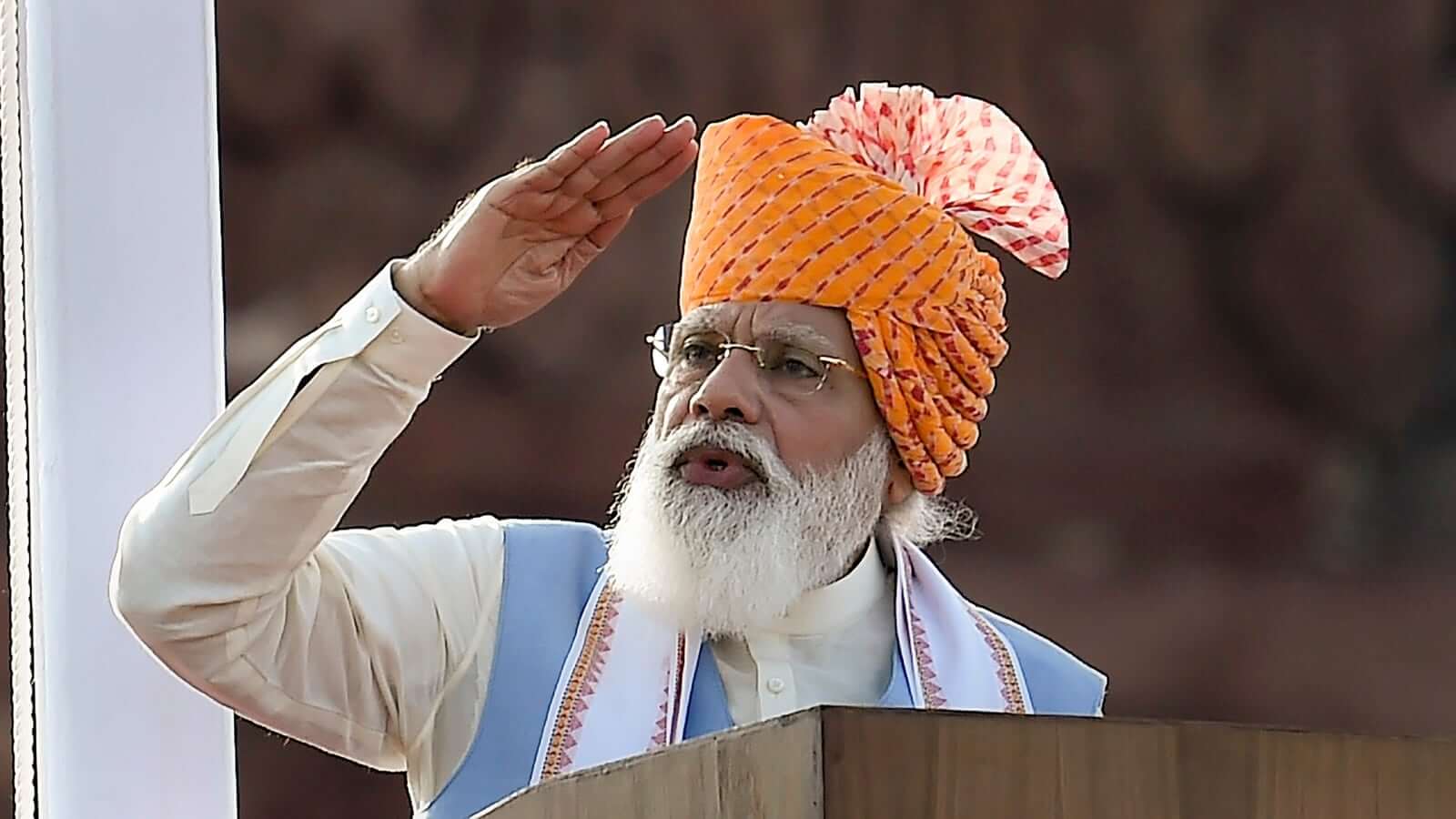Addressing the nation on its 75th Independence Day, Prime Minister (PM) Narendra Modi vowed to ensure that India will become a developed country within the next 25 years.
In this regard, Modi introduced Panch Pran, or five vows, that he said India would achieve by 2047, when India will celebrate its 100th year of independence.
Today’s India is an aspirational society where there is a collective awakening to take our nation to newer heights. #IndiaAt75 pic.twitter.com/ioIqvkeBra
— Narendra Modi (@narendramodi) August 15, 2022
The first vow was to ensure a “developed India,” which he said is “dependent on the strength of the grassroots.” In particular, he stressed on the need to expand the capacity of India’s small farmers, entrepreneurs, and small and medium-sized businesses.
He said, “Being able to do so shall guarantee India’s potential and therefore our efforts are going in the direction of giving maximum emphasis to this strata which is the fundamental grass root force of our economic development.”
Addressing the nation on Independence Day. https://t.co/HzQ54irhUa
— Narendra Modi (@narendramodi) August 15, 2022
Secondly, speaking of the colonial era, he promised to ensure that slavery does not exist “even in the deepest corners of our mind or habits,” asserting that the practice has kept the country “bound” and “tied up.”
Thirdly, he pledged to evoke a feeling of pride in India’s “heritage and legacy.” In this regard, he cited the example of India’s role in promoting “holistic health care” through alternative therapies such as Ayurveda. He also highlighted the centrality of Yoga in promoting an environmentally-friendly lifestyle.
His fourth vow centred around fostering a sense of national unity and solidarity, stressing on the importance of “peaceful co-existence” between the country’s diverse “traditions and creeds.” He underscored that the “feeling of oneness is important for unity.”
I bow to those greats who built our nation and reiterate my commitment towards fulfilling their dreams. #IndiaAt75 pic.twitter.com/YZHlvkc4es
— Narendra Modi (@narendramodi) August 15, 2022
Finally, the fifth resolve was that all citizens, including the PM and chief ministers of the country, must recognise and fulfil their duty to the nation with discipline and devotion. He said that just as the government is responsible for ensuring electricity, civilians have a duty to be mindful in their use of the precious resource.
Modi said India has “accomplished various achievements” over the past 75 years despite “ups and downs” and managed to combat “denigration” and “scarcity.” He said, “It is true that the hundreds of years of colonial rule had inflicted deep wounds on India and the sentiments of the Indians, but the people were resilient and passionate.”
Today’s India is an aspirational society where there is a collective awakening to take our nation to newer heights. #IndiaAt75 pic.twitter.com/ioIqvkeBra
— Narendra Modi (@narendramodi) August 15, 2022
He recalled colonisers’ attempts to “frighten, disappoint, and frustrate the country” in the “final stages” of the independence movement and warned that the departure of the British would leave India “scattered and in shambles” and “plunge” India “into a dark age.”
In this regard, he opined that Indians’ “unlimited potential to survive” has driven the nation forward despite “innumerable adversities,” such as food shortages and war.
He said this resilience has led the international community to look to India for solutions, noting the leadership shown by the country’s Fintech industry. He pointed to the example of digital payment methods such as Rupay and UPI-Bhim, which are now being used in several other countries.
He said this resilience is rooted in its self-sufficiency, a key pillar of his “ “Aatmanirbhar Bharat” (self-reliant India) scheme, which he said has inspired a “mass movement.” The PM noted, however, that there is still a lot of room for improvement in the energy sector, particularly in renewable energy
Today’s India is an aspirational society where there is a collective awakening to take our nation to newer heights. #IndiaAt75 pic.twitter.com/ioIqvkeBra
— Narendra Modi (@narendramodi) August 15, 2022
Despite this tremendous potential for growth, Modi also expressed his discontent with the “perversion” of sexism. He stressed, “Women’s pride is going to be a huge asset in fulfilling the dreams of the nation. I see this power and therefore I am insistent on it.” He noted that women are excelling in all fields despite these challenges, including law, science, rural development, and even security.
Modi also addressed the need to introduce “corrective steps” to confront nepotism and dynasticism, perhaps a reference to the opposition Congress party, which has been ruled by the same family since independence. He also stressed on the need to fight against corruption, saying it is “eating away the country like termites.” To this end, he called for support to purify and clean Indian politics and institutions by creating a meritocratic system.

